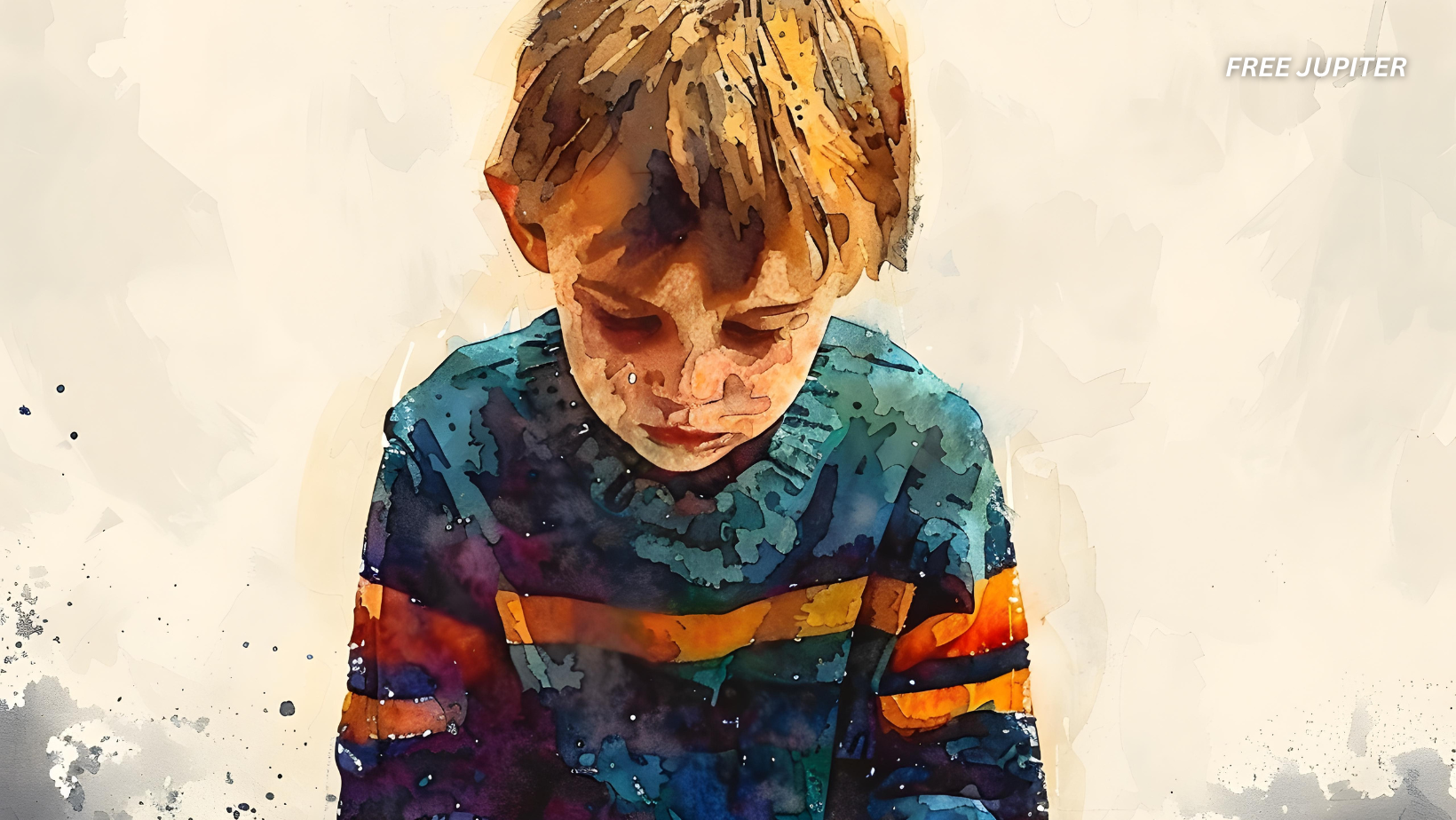For many people, hearing a simple phrase like “I’m proud of you” during childhood might have seemed small at the time—but its absence can leave an echo that lingers well into adulthood. Words, though intangible, carry enormous emotional weight. They help shape how children view themselves, how they relate to others, and even how they navigate the world as grown-ups.
When parents or caregivers offer positive affirmations such as “I’m proud of you,” they’re doing more than expressing affection—they’re helping to build a child’s emotional foundation. Without these affirmations, some adults may find themselves struggling with certain emotional or behavioral patterns that trace back to this early lack of validation.
Psychologists have studied the long-term effects of childhood affirmation, and their findings reveal that the simple act of verbal acknowledgment can influence nearly every aspect of a person’s self-image. Below are ten traits commonly observed in adults who grew up without regularly hearing “I’m proud of you.”
Why Parental Affirmation Matters
According to clinical psychologists, positive affirmation from parents is not just a nice gesture—it’s essential for emotional growth. It helps children develop a healthy self-concept, fosters security in relationships, and teaches them that their efforts and identity hold inherent value.
Dr. Alice Connors-Kellgren, a clinical psychologist at Tufts Medical Center, explains that when children receive affirmations like “I’m proud of you,” it helps them internalize a sense of safety and self-worth. “It teaches kids that they are capable, loved, and supported,” she says. “Without that foundation, they may grow up questioning their value or struggling to feel confident in their achievements.”
Meanwhile, psychologist Dr. Noëlle Santorelli emphasizes that verbal reassurance strengthens the emotional bond between parents and children. It communicates that love and acceptance are not conditional on success but are constants in a child’s life.
Read more: 12 Common Adult Fears That Actually Aren’t New. They Come From Childhood.
1. Low Self-Esteem
One of the most common outcomes of not receiving affirmations as a child is low self-esteem. When a child rarely hears they’ve made someone proud, they may internalize the belief that they are not good enough, no matter what they accomplish.
As Dr. Connors-Kellgren explains, “Affirmation teaches children that they are valuable, not only because of what they do, but because of who they are.” Without it, many grow into adults who second-guess their worth and downplay their strengths.
2. A Blurred Sense of Identity
A lack of early affirmation can make it difficult for a person to develop a clear sense of who they are. If a child never feels seen or validated, they might grow up unsure of their own preferences, values, or passions.
Psychologist Dr. Cynthia Shaw notes that without consistent encouragement, children may not explore their interests or express themselves freely. As adults, this can result in feelings of confusion or emptiness, as if they’re unsure where their true identity begins.
3. Perfectionism
Children who were rarely praised may grow into adults who constantly strive for perfection. They often believe that love and approval must be earned through achievement. This mindset can lead to overworking, burnout, and an inability to celebrate small victories.
Dr. Shaw explains that when affirmation is only given after accomplishments, a person might start to equate worth with success. “Perfectionism becomes a way to protect themselves from the fear of rejection,” she says.
4. People-Pleasing Tendencies
Many adults who didn’t hear “I’m proud of you” early in life learn to seek validation through others. They may go out of their way to make others happy—even at their own expense—because approval feels like the only path to acceptance.
These individuals often develop a keen awareness of others’ needs and emotions, sometimes to the point of neglecting their own. This constant people-pleasing can lead to exhaustion and resentment over time.
5. Hyper-Independence
While some people crave validation, others respond by swinging to the opposite extreme—believing they can rely only on themselves. Psychologists call this hyper-independence.
Dr. Santorelli explains that when children learn that emotional needs won’t be met, they adapt by becoming self-sufficient to avoid vulnerability. As adults, they may find it difficult to ask for help or to trust others deeply, even when doing so could ease their burdens.
6. Chronic Self-Doubt
Growing up without hearing words of encouragement can lead to a lifetime of second-guessing oneself. These adults often question their decisions, feel hesitant to take risks, or struggle to believe that they’re capable of success.
Dr. Santorelli points out that without early confidence-building experiences, “doubt becomes the default setting.” This self-doubt can affect everything from career choices to relationships.
Read more: Trauma Therapist Warns of ‘Invisible’ Parenting Behavior That Harms Children Long-Term
7. Anxiety and Overthinking
Without affirmation, many people grow up with a heightened sense of anxiety. They may constantly worry about whether they’re doing enough, being enough, or meeting expectations.
As Dr. Connors-Kellgren explains, uncertainty about one’s value can lead to a chronic state of tension. This anxiety often manifests as overthinking, perfectionism, or excessive concern about how others perceive them.
8. Depression and Emotional Fatigue
Feeling unseen or unacknowledged in childhood can create deep emotional fatigue later in life. When individuals internalize a belief that nothing they do is good enough, they may experience sadness, lack of motivation, and even depression.
Depression, in this context, often develops alongside low self-esteem and a weakened sense of self-worth. Over time, these emotional patterns can make it hard to experience joy or fulfillment, even in moments of achievement.
9. Insecurity in Relationships
The early bond between child and caregiver often sets the tone for future relationships. If affirmation was missing in that bond, adults may struggle with emotional intimacy later in life.
According to Dr. Connors-Kellgren, people who grew up without reassurance may constantly seek proof of love or approval from their partners. Others may guard their emotions, fearing rejection. This can create a cycle of uncertainty and mistrust that affects friendships and romantic relationships alike.
10. Difficulty Celebrating Success
Another subtle but telling trait is the inability to enjoy personal victories. People who never heard “I’m proud of you” may downplay their accomplishments or quickly move on to the next goal without taking time to feel satisfied.
This inability to celebrate success often stems from a deep-seated belief that achievements are never “enough.” Over time, it can rob individuals of joy and make fulfillment feel perpetually out of reach.
Healing the Inner Child
The good news is that it’s entirely possible to heal from the effects of growing up without affirmation. While the journey requires patience and self-compassion, many adults learn to give themselves the validation they once lacked.
Therapy can be a powerful tool for addressing these early emotional wounds. Techniques such as journaling, mindfulness, and positive self-talk can help rebuild self-esteem. Writing or speaking affirmations—like “I’m proud of what I’ve achieved today”—may sound simple, but over time, it reprograms the brain to recognize self-worth.
Dr. Connors-Kellgren recommends consciously noticing and celebrating one’s own small victories. She explains, “When you take time to affirm yourself, you’re essentially re-parenting the inner child that once went unheard.”
Loved ones can also play a supportive role by offering genuine encouragement and consistent affirmation. Over time, this helps reinforce healthier emotional patterns and a stronger sense of identity.
Read more: 12 Signs You Grew Up Too Fast and Missed Out on Childhood
Final Thoughts
While not hearing “I’m proud of you” in childhood can leave lasting emotional marks, it does not define a person’s entire life story. The mind is adaptable, and emotional wounds can heal with care and awareness. Through therapy, reflection, and intentional self-compassion, individuals can learn to become the source of affirmation they once needed.
After all, it’s never too late to start saying, “I’m proud of me.”
Featured image: Freepik.
Friendly Note: FreeJupiter.com shares general information for curious minds. Please fact-check all claims and double-check health info with a qualified professional. 🌱










